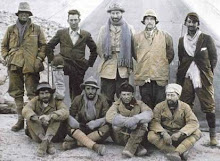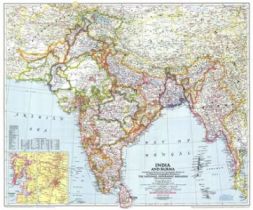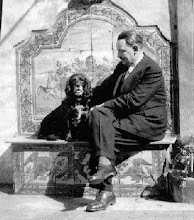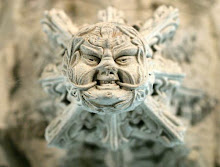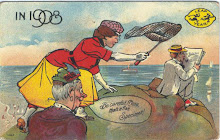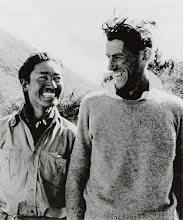I love getting my weekly Dalai Lama quotes in the email, and I particularly love this quote about the impossibility of transference of inner development from one person to another. (If more people understood this, it would be easier for teachers and parents to accept each child's uniqueness.) But Chinese thought offers a gentle counterbalance in the I Ching, about how the force of a good strong personality can influence even the most stubborn people for the better: one of my favorite Hexagrams, 61, Inner Truth.
Dalai Lama Quote of the Week from Snow Lion Publications:
"...when you start practicing, you should not expect too much. We live in a time of computers and automation, so you may feel that inner development is also an automatic thing for which you press a button and everything changes. It is not so. Inner development is not easy and will take time. External progress, the latest space missions and so forth, have not reached their present level within a short period but over centuries, each generation making greater developments based on those of the previous generation. However, inner development is even more difficult since internal improvement cannot be transferred from generation to generation. Your past life's experience very much influences this life, and this life's experience becomes the basis for the next rebirth's development, but transference of inner development from one person to another is impossible. Thus, everything depends on yourself, and it will take time.
I have met Westerners who at the beginning were very enthusiastic about their practice, but after a few years have completely forgotten it, and there are no traces of what they had practiced at one time. This is because at the beginning they expected too much. Shantideva's Engaging in the Bodhisattva Deeds emphasizes the importance of the practice of patience--tolerance. This tolerance is an attitude not only towards your enemy but also an attitude of sacrifice, of determination, so that you do not fall into the laziness of discouragement. You should practice patience, or tolerance, with great resolve. This is important."
--from Kindness, Clarity, and Insight 25th Anniversary Edition by The Fourteenth Dalai Lama, His Holiness Tenzin Gyatso, edited and translated by Jeffrey Hopkins, co-edited by Elizabeth Napper, published by Snow Lion Publications
~~~~~~~~~~~~~~~~~~~~~~~~~~~~~~~~~~~~~~~~~~~~~~~~~~~~~~~~~~~~~~~~~~~~~~~~~~
Now for the gentle counterbalance from the I Ching, Hexagram 61, Inner Truth:
Chung Fu / Inner Truth
above SUN THE GENTLE, WIND
below TUI THE JOYOUS, LAKE
"The wind blows over the lake and stirs the surface of the water. Thus visible effects of the invisible manifest themselves. The hexagram consists of firm lines above and below, while it is open in the center. This indicates a heart free of prejudices and therefore open to truth. On the other hand, each of the two trigrams has a firm line in the middle; this indicates the force of inner truth in the influences they represent.
The attributes of the two trigrams are: above, gentleness, forbearance toward inferiors; below, joyousness in obeying superiors. Such conditions create the basis of a mutual confidence that makes achievements possible.
The character of fu ("truth") is actually the picture of a bird's foot over a fledgling. It suggests the idea of brooding. An egg is hollow. The light-giving power must work to quicken it from outside, but there must be a germ of life within, if life is to be awakened. Far-reaching speculations can be linked with these ideas.
The Judgment
利 貞 利 涉 大 川 豚 魚 吉 中 孚
INNER TRUTH.
Pigs and fishes.
Good fortune.
It furthers one to cross the great water.
Perseverance furthers.
Pigs and fishes are the least intelligent of all animals and therefore the most difficult to influence. The force of inner truth must grow great indeed before its influence can extend to such creatures. In dealing with persons as intractable and as difficult to influence as a pig or a fish, the whole secret of success depends on finding the right way of approach. One must first rid oneself of all prejudice and, so to speak, let the psyche of the other person act on one without restraint. Then one will establish contact with him, understand and gain power over him. When a door has thus been opened, the force of one's personality will influence him. If in this way one finds no obstacles insurmountable, one can undertake even the most dangerous things, such as crossing the great water, and succeed.
But it is important to understand upon what the force inner truth depends. This force is not identical with simple intimacy or a secret bond. Close ties may exist also among thieves; it is true that such a bond acts as a force but, since it is not invincible, it does not bring good fortune. All association on the basis of common interests holds only up to a certain point. Where the community of interest ceases, the holding together ceases also, and the closest friendship often changes into hate. Only when the bond is based on what is right, on steadfastness, will it remain so firm that it triumphs over everything."
Wednesday, December 10, 2008
Subscribe to:
Comments (Atom)





